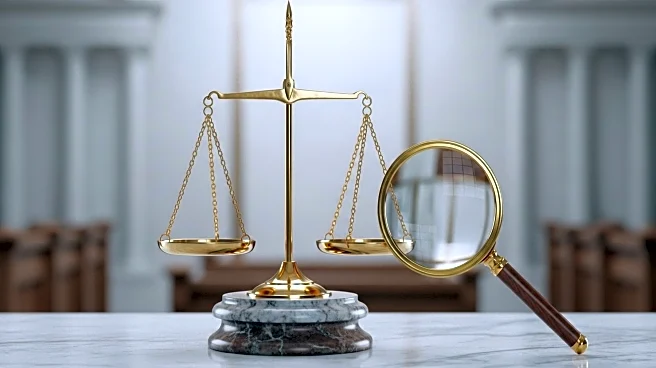What's Happening?
Supreme Court Justice Clarence Thomas has expressed skepticism about the role of legal precedent in upcoming cases on the court's docket. Speaking at the Catholic University of America's Columbus School of Law, Thomas suggested that some precedents might not be as authoritative as traditionally believed. His comments come as the Supreme Court prepares to hear cases on significant issues such as same-sex marriage, tariffs, and campaign finance. Thomas, part of the court's conservative supermajority, has previously voiced his willingness to reconsider established precedents, including the landmark Obergefell decision that legalized same-sex marriage nationwide.
Why It's Important?
Thomas's remarks highlight a potential shift in how the Supreme Court may approach established legal precedents. This could lead to significant changes in U.S. law, particularly in areas where past decisions have been contentious. The possibility of overturning or revisiting major rulings could have wide-ranging implications for civil rights, economic regulations, and social policies. Thomas's stance reflects a broader conservative judicial philosophy that prioritizes originalism and textualism over adherence to precedent. This approach could reshape the legal landscape in the U.S., affecting millions of Americans and influencing future legal interpretations.
What's Next?
As the Supreme Court's new term begins, attention will be focused on how Thomas and his colleagues handle cases involving contentious issues. The potential for revisiting major precedents could lead to significant legal and societal shifts. Stakeholders, including advocacy groups and legal experts, will likely engage in public discourse and lobbying efforts to influence the court's decisions. The outcomes of these cases could prompt legislative responses or further judicial challenges, depending on the court's rulings.










